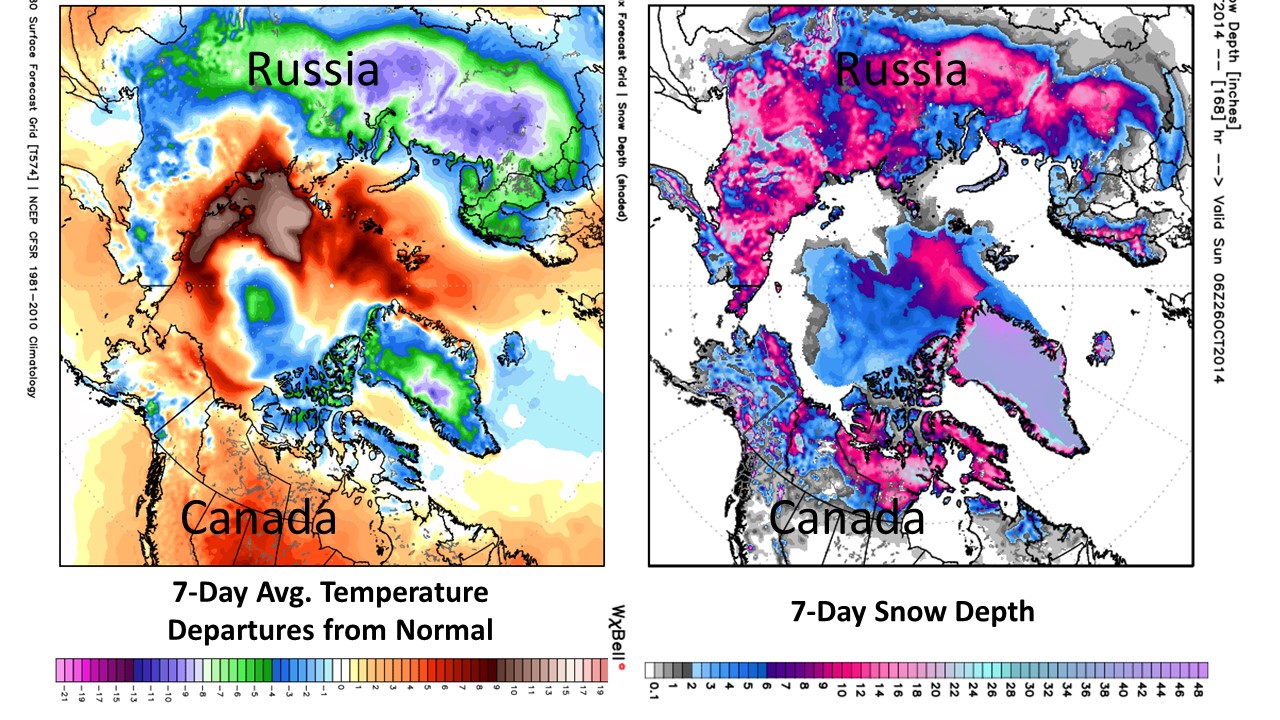Winter has gotten an early start in Russia, with much of the expansive country already covered in snow (even though it’s only mid-October) and temperatures running well below normal.
The immediate future looks worse. The GFS model forecast from last night shows temperatures over the next 7 days running 10 to 20 deg. F below normal, and a rapid buildup of the snowpack (click image for full size, based upon graphics from WeatherBell.com):

GFS 7-day forecast of average temperature departures from normal (deg. C), and snow depth (inches) by the end of the 7 days, ending Sunday, Oct. 26, 2014.
Individual days and locations are forecast to be 40 deg. F below normal, with some places reaching 40 deg. below zero, more typical of mid-winter.
The very warm spots over the Arctic Ocean are where there is less sea ice cover compared to the 30-year mean (1981-2010).
As reported by The Moscow Times, Russian forecasters like those elsewhere are projecting an unusually cold and snowy winter. Whenever the “Siberian Express” kicks in this winter, it could mean some bitterly cold outbreaks for North America and even the U.S.

 Home/Blog
Home/Blog



